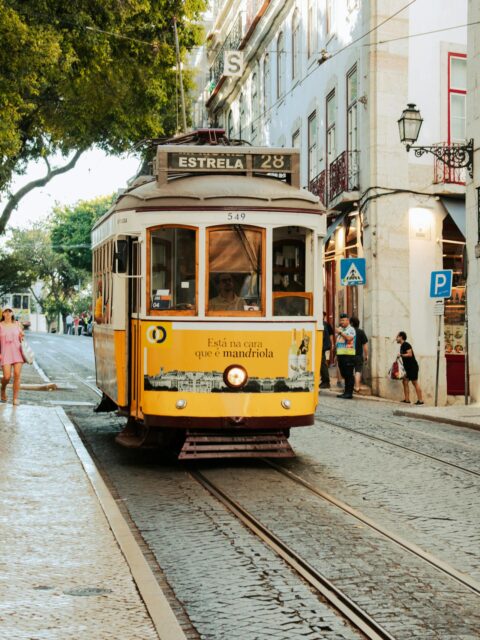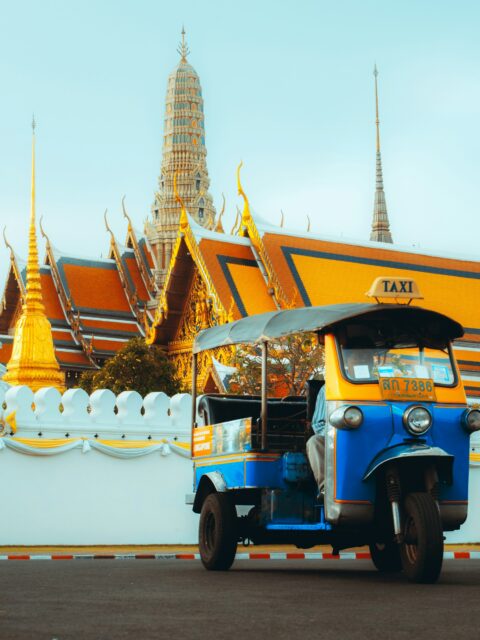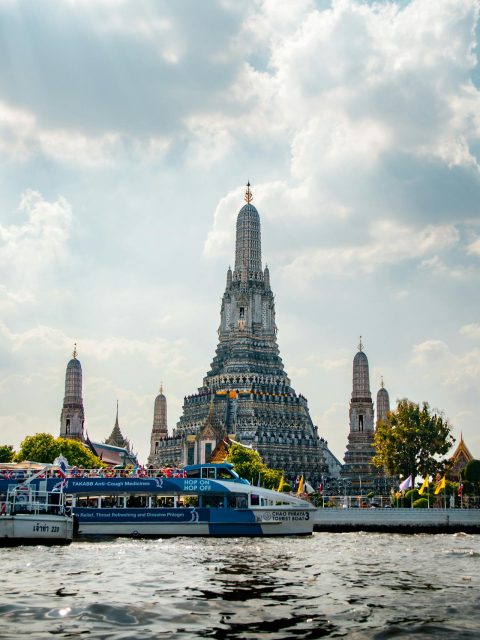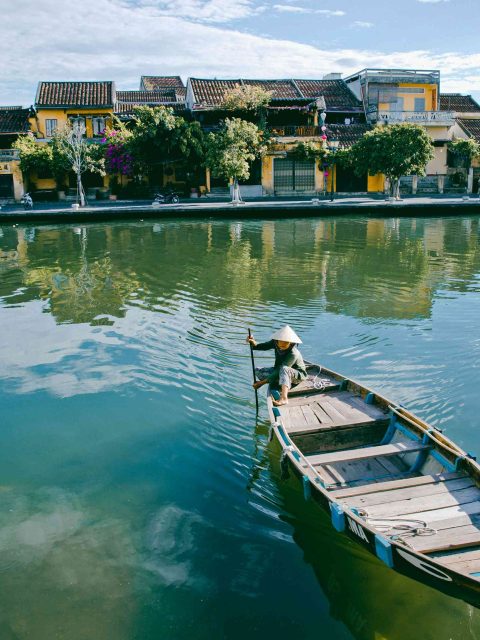Comprehensive China Travel Guide for 3 Weeks
A cultural sanctuary and a wanderer’s paradise, China offers a tapestry of experiences to the numerous adventurers who explore its ancient cities, lush bamboo forests, and majestic mountains. Spending three weeks is the ideal duration to delve into the varied landscapes of this vast country. From the artistic lanes of Beijing with its bustling markets, to the tranquil mountainside villages in Guilin, or the enchanting islands of Hainan with dolphins playing in the crystal-clear waters, this China travel guide is your ultimate companion to planning the perfect itinerary. Don’t miss a single treasure!
Chapters
China Travel Guide (3 Weeks)
The Chinese people are known for their warm hospitality, and while many people in urban areas may have some knowledge of English, it is not as commonly spoken as in other countries such as Singapore or the Philippines. However, visitors will still find English speakers in major tourist areas, especially among hotel staff and tour operators. Learning a few basic phrases in Mandarin can greatly enrich your interactions.
Start Your China Adventure in Beijing ( 4 Days)
No trip to China is complete without a visit to Beijing, especially for first-time travelers. Start your adventure in this historic city, which serves as a major gateway for most international flights. A well-organized 4-day Beijing travel itinerary for first-time visitors can include key Beijing tourist attractions.
Begin with Tiananmen Square, which leads directly to the Forbidden City. After your Forbidden City tour, take a short walk to Jingshan Park for panoramic views of the city.
One of the must-visit landmarks in Beijing for tourists is the Great Wall of China. For a comfortable experience, visiting the Great Wall from Beijing at the Mutianyu Great Wall is recommended. This section has convenient facilities for ascending and descending, making it suitable for all ages and easier compared to Jinshanling or Jiankou.
In the evening, explore the lively Wangfujing Market, known for its unique street food offerings that range from seafood to exotic snacks. You’ll also find more familiar options, such as fresh fruit salads. This bustling market offers an authentic way to experience local life and is a highlight of any Beijing food tour.
Complete your 4-day Beijing itinerary by trying the famous Peking duck at a popular local restaurant like Sheng Yong Xiang. End your stay with a peaceful Summer Palace visit and a stroll through Beihai Park for some of the top cultural experiences in Beijing.
Shanghai ( 3 Days )
No trip to China is complete without visiting Shanghai, the country’s largest city and a hub of economic and cultural significance.
A 3-day Shanghai travel itinerary for first-time visitors should include iconic Shanghai attractions like The Bund walk, where you can admire the stunning skyline. For moments of tranquility, visit Yu Garden exploration, an oasis in the city’s heart. The Jade Buddha Temple surrounded by peaceful gardens also offers a distinctive Shanghai cultural experience.
Make sure to visit Nanjing Road for a vibrant shopping experience filled with local and international stores. To complete your comprehensive 3-day tour of Shanghai, visit landmarks like the Shanghai Tower, take an Oriental Pearl Tower visit, and stroll through the historic Former French Concession for a glimpse into Shanghai’s rich past.
For those arriving in the city during the day at Pudong International Airport, the Shanghai Maglev Train is the quickest way to reach the city center, cutting travel time significantly. Alternatively, a hop-on hop-off bus tour is an excellent way to explore Shanghai tourist spots while listening to live commentary from a guide.
From Beijing, you can fly directly to Shanghai, which takes about 2 hours and costs $50-$90 one-way, or choose the high-speed train that takes 4-5 hours at around $80.
Hangzhou ( 2 Days )
Hangzhou is a city known for its rich history and scenic beauty, seamlessly blending historical significance with breathtaking natural landscapes that captivate every traveler.
A visit to West Lake, the crown jewel of the city and one of the most famous landmarks in Hangzhou, is a must. Spanning 6 sq km, West Lake offers unique Hangzhou cultural experiences. Enjoy a leisurely West Lake boat tour, stroll along the scenic Nanshan and Beishan roads, or relax at a lakeside teahouse while indulging in Longjing tea tasting.
Don’t miss a Lingyin Temple visit, one of the oldest and most revered temples in the region, adding a touch of spirituality to your journey.
For food enthusiasts, Hangzhou’s cuisine is a true delight. Sample traditional dishes like Beggar’s Chicken (chicken baked in clay), West Lake Fish in Sweet Sour Sauce, Dongpo Pork (braised pork), and Fried Shrimps with Longjing Tea. Each dish showcases the city’s unique culinary heritage.
Exploring Qinghefang Ancient Street and Hangzhou Old Street will round out your visit, immersing you in the city’s rich history and vibrant local market atmosphere.
To reach Hangzhou, the high-speed train from Shanghai is the most convenient option, taking only 50 minutes and costing around $10. This short journey provides an ideal start for your exploration of Hangzhou attractions.
Xi’an ( 4 Days )
Xi’an is an essential stop for first-time visitors to China, holding a special place in the country’s history as the Eastern end of the Silk Road.
One of the must-visit attractions in Xi’an for tourists is the Terracotta Warriors tour, a remarkable sight commissioned by Emperor Shi Huangdi to guard him in the afterlife. However, Xi’an sightseeing doesn’t end there.
Explore the vibrant Muslim Quarter, known for its bustling atmosphere and mouth-watering street food. This area is especially lively in the evenings, filled with vendors and visitors enjoying local delicacies. It is truly a Xi’an cultural experience that should not be missed.
Make sure to visit the impressive Ancient City Wall of Xi’an, which stretches for 13.7 kilometers around the city center. One of the best experiences is a bike ride along the wall, with rentals available for about 45 CNY per 3 hours. This unique activity allows you to take in the Xi’an city highlights with panoramic views.
Be sure to visit the Bell Tower and explore the Drum Tower, both significant symbols of the city’s rich heritage. End your day with a visit to the Giant Wild Goose Pagoda, an iconic structure symbolizing Xi’an’s Buddhist roots.
For the easiest way to reach Xi’an from Hangzhou, consider taking a 2.5-hour domestic flight, typically priced at around $60 one-way.
Kunming ( 3 Days )
Kunming, known as the “City of Eternal Spring,” is a standout destination when exploring Yunnan province. The weather here is always pleasant, with vibrant flowers and lush greenery year-round. Walking along the streets and experiencing the locals’ relaxed lifestyle brings a fresh experience that highlights the city’s charm.
In your 3 days in Kunming itinerary, don’t miss the famous landmarks such as the Stone Forest, a UNESCO World Natural Heritage site with striking limestone formations. Make sure to visit Green Lake Park, an ideal spot for enjoying natural beauty and leisurely walks.
Western Hills hiking offers panoramic views of Dianchi Lake and a peaceful setting, making it a memorable part of your Kunming sightseeing. Additionally, Yunnan ethnic village exploration will deepen your understanding of the region’s diverse culture and rich traditions.
If time permits, consider extending your trip with short visits to Dongchuan Red Land, known for its vivid natural colors, or the intriguing Jiuxiang Karst Caves. End your journey with an impressive performance at the Dynamic Yunnan Theatre, showcasing local music and traditional dance.
Guangzhou ( 2 Days )
Guangzhou, formerly known as Canton, is China’s third-largest city and offers countless Guangzhou attractions that should be highlighted in any travel itinerary.
Begin your 2 days in Guangzhou itinerary by exploring the iconic Canton Tower, where panoramic views of the city await. For a relaxing afternoon, consider a Pearl River cruise to witness the city’s skyline at sunset.
Stroll through Yuexiu Park, home to the Five Rams Statue, a symbol of Guangzhou’s history and legend.
Food lovers will find paradise in Guangzhou, the heart of Cantonese cuisine, one of China’s eight great culinary traditions. Dim sum is a must, with dishes such as dumplings, noodles, and buns perfect for sharing.
Try local favorites like Bingsheng Pinwei, known for its authentic dishes, or enjoy an upscale experience at Jiang by Chef Fei at the Mandarin Oriental, where roasted meats and refined dim sum await.
For budget-friendly dining, visit Muslim noodle restaurants offering hearty meals starting from 15 CNY. Lunches typically cost around 43 CNY, while a mid-range dinner for two can be around 330 CNY.
End your day by visiting Chen Clan Ancestral Hall, an architectural gem showcasing intricate carvings and traditional art. Alternatively, take a peaceful walk on Shamian Island to admire historic buildings and serene riverside views.
You can reach this vibrant city via a 2.5-hour flight (approximately $100) or a 16.5-hour overnight train (about $55).
Hong Kong ( 3 Days )
Hong Kong, with its rich colonial past and deep-rooted Chinese heritage, is a city where Eastern traditions blend seamlessly with Western influences, creating a unique and vibrant atmosphere.
Known for its towering skyscrapers and iconic Victoria Harbour, Hong Kong boasts a skyline that lights up spectacularly at night with neon reflections on the water. This city masterfully balances tradition and modernity, making it a must-visit destination for those seeking a distinctive experience.
Begin your exploration with a visit to Victoria Peak, which offers breathtaking panoramic views of the city, especially at sunset.
Take a leisurely walk along the Tsim Sha Tsui promenade to enjoy the evening skyline and explore the Avenue of Stars, a tribute to the city’s film industry legends.
Hong Kong is also renowned as a gastronomic paradise, offering a vast array of global cuisines. From upscale dining venues to bustling street food stalls, there is something to suit every taste. Experience authentic Cantonese cuisine with dim sum and fresh seafood at popular local spots.
Hong Kong operates with its own currency, the Hong Kong dollar (HKD), separate from mainland China’s Renminbi. Most visitors do not need a tourist visa, but you will need a passport valid for at least one month beyond your departure date and proof of onward travel.
Keep in mind that Hong Kong can be pricey, from accommodations to dining and shopping, expenses add up quickly. It is more expensive compared to other major Asian cities such as Bangkok, Ho Chi Minh City, and Manila. Budget-conscious travelers should plan accordingly and be prepared to use credit cards for higher expenses.
Do I Need a Visa for China?
Most travelers, including those from the US, the UK, EU, and Canada, require a visa to enter China. To apply, you will typically need to visit your nearest Chinese embassy or consulate.
Important: Check your passport’s expiration date well in advance. If it is set to expire within a few months or has any form of damage, you may not be eligible for a visa. Even minor issues with your passport can result in application rejection, so ensure it is in good condition.
Some nationalities, like citizens of Singapore and Japan, are exempt from visa requirements for short stays. For the most up-to-date information, always refer to your country’s official travel advisory page.
Is China safe for travel?
China is generally considered a safe destination for travelers. The crime rate is relatively low, and violent crime against foreigners is rare. Petty crimes, such as pickpocketing, can occur in crowded areas, so it’s advisable to remain vigilant and secure your belongings.
Best Time to Visit China
The best time to visit China is during spring (April to May) and autumn (September to October). These seasons offer pleasant weather, with mild temperatures and fewer tourists, making it ideal for sightseeing. If you’re looking for the best months to travel to China for sightseeing, spring and autumn are your go-to options.
Avoid the summer months (July and August) if possible. This period is peak travel time for locals, resulting in crowded attractions and high demand for train tickets and hotel bookings. From late June through August, tourist sites can be overwhelmingly busy, which may detract from your experience. The same can be said for national holidays like the Chinese New Year (January-February) and the Mid-Autumn Festival (between September and October). These festive times draw massive crowds, making it difficult to navigate popular spots and find good hotel deals.














